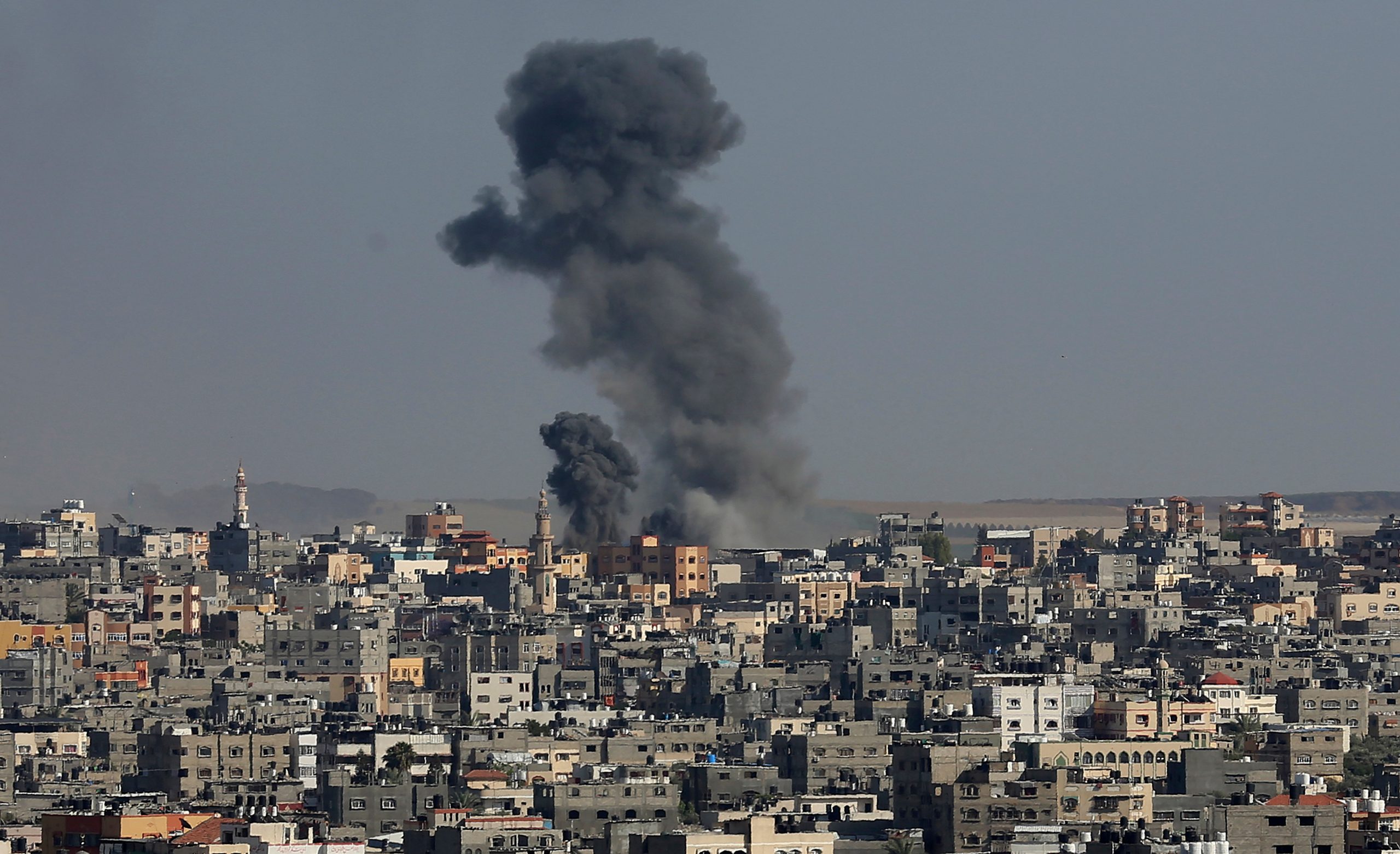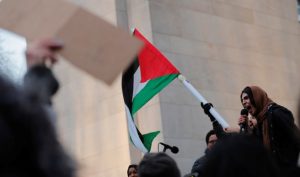Israel faced an escalating conflict on two fronts Thursday, scrambling to quell riots between Arabs and Jews on its own streets after days of exchanging deadly fire with Palestinian militants in Gaza.
Despite diplomatic efforts to ease the crisis, which US President Joe Biden said he hoped would end “sooner than later”, hundreds of rockets flew across the Gaza Strip overnight.
Also read: Explained: What has led to recent Israel-Palestine clashes in Jerusalem
Air raid warnings went off across Israel, including for the first time in the country’s north.
Israel’s air force said it had launched multiple strikes, targeting what it described as locations linked to the “counterintelligence infrastructure” of Hamas, the Islamist group that controls Gaza, as well as the house of Iyad Tayeb, one of the movement’s commanders.
In Gaza, 67 people have been killed so far — including 17 children — and nearly 400 injured after days of near relentless Israeli air strikes.
On Wednesday, Hamas announced the death of its military chief in Gaza City, Bassem Issa, with the Israel Defense Forces (IDF) saying they had killed three other senior figures as well.
IDF strikes also destroyed a multi-storey tower housing Palestinian television channel Al-Aqsa, set up by Hamas.
Israel said around 1,500 rockets had been launched into its territory since the beginning of the week by Palestinian militants.
Seven people have been killed, including one six-year-old after a rocket struck his home in southern Israel, the United Hatzalah volunteer rescue agency said.
The past few days have seen the most intense hostilities in seven years between Israel and Gaza’s armed groups, triggered by weekend unrest at Jerusalem’s Al-Aqsa mosque compound, which is sacred to both Muslims and Jews.
Coinciding with the aerial bombardments is surging violence between Arabs and Jews inside Israel.
Also read: Palestinians and Israelis: Clashes since 2015
On Wednesday night, Israeli far-right groups took to the streets across the country, clashing with security forces and Arab Israelis.
Police said they had responded to violent incidents in multiple towns, including Lod, Acre and Haifa.
Israeli television aired footage of a far-right mob beating a man they considered an Arab until he lay unconscious on his back in a street of Bat Yam, near Tel Aviv.
“The victim of the lynching is seriously injured but stable,” Tel Aviv’s Ichilov Hospital said, without identifying him.
A state of emergency has been declared in the mixed Jewish-Arab city of Lod, where a synagogue and other Jewish property has been torched and an Arab resident was shot dead.
Israel’s President Reuven Rivlin, in unusually strong language, denounced what he described as a “pogrom” in which “an incited and bloodthirsty Arab mob” had injured people and attacked sacred Jewish spaces.
In the occupied West Bank, a Palestinian man was killed during a confrontation with Israeli soldiers near the northern city of Nablus, the Palestinian health ministry said Thursday.
The death brings the number killed in clashes between Palestinians and Israeli forces in the West Bank to three on Wednesday alone.
“What has been happening these last few days in Israeli towns is unacceptable… Nothing justifies the lynching of Arabs by Jews and nothing justifies the lynching of Jews by Arabs,” Prime Minister Benjamin Netanyahu said, adding that Israel was fighting a battle “on two fronts”.
An emergency UN Security Council meeting on the tensions has been requested for Friday, diplomatic sources told AFP.
The Council has already held two closed-door videoconferences since Monday, with the United States — a close Israel ally — opposing adoption of a joint declaration, which it said would not “help de-escalate” the situation.
Netanyahu spoke later Wednesday to Biden, who said “Israel has a right to defend itself”.
Also read: From stone pelting to stun grenades: Timeline of Gaza and Jerusalem conflict
US Secretary of State Antony Blinken said he had spoken to Palestinian president Mahmud Abbas, urging an end to the rocket attacks.
Blinken had said earlier that a US envoy would travel to the Middle East to seek to calm tensions.
Meanwhile, Russian Foreign Minister Sergei Lavrov, speaking alongside United Nations Secretary-General Antonio Guterres, called for an urgent meeting of the Middle East Quartet — Russia, the United States, the UN and the EU.
British Prime Minister Boris Johnson urged both sides to “step back from the brink”.
But the Israeli government has warned that “this is only the beginning”, and army spokesman Jonathan Conricus said strikes on Gaza would continue as Israel prepares for “multiple scenarios”.
Sending ground troops into Gaza was “one scenario” that was not the focus of the current operation, Conricus said.
Hamas leader Ismail Haniyeh has also threatened to step up attacks, warning that “if Israel wants to escalate, we are ready for it”.
The crisis flared last Friday when weeks of tensions boiled over and Israeli riot police clashed with crowds of Palestinians at Jerusalem’s Al-Aqsa mosque.
Also read: Actor Gal Gadot disables comments on her tweet on Israel after backlash
Nightly disturbances have since flared in east Jerusalem, leaving more than 900 Palestinians injured, according to the Palestinian Red Crescent.
The unrest has been driven by anger over the looming evictions of Palestinian families from the Jerusalem neighbourhood of Sheikh Jarrah.







